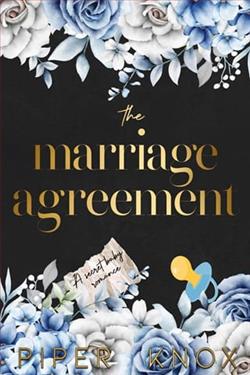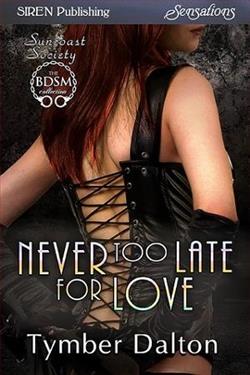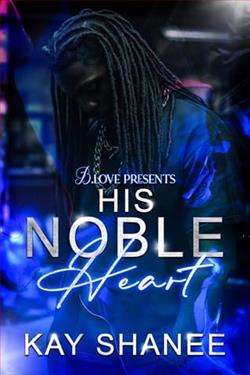Page 29 of The Start of the Story
I pushed my chair back and turned tired eyes to focus out of the streaming window, practically seeing fairies myself now as the raindrops blurred into multicoloured stripes. It wasn’t hard to envisage families out here, isolated and with a long five-mile trudge to the nearest town, using the otherworld as an explanation and descriptor for things in the natural world that they didn’t yet have explanations for. Didn’t we, even in the twenty-first century, ascribe actions to ghosts and poltergeists when we couldn’t otherwise account for them? It seems that humans are naturally imbued with a tendency to want to co-exist with the paranormal.
I rubbed my eyes again and rested my head in my hands. Five hours in front of a screen wasn’t doing my sight or my neck muscles any favours, and I hadn’t even got Chess to bring me regular cups of tea or to bring magazines to my desk and point dramatically at outfits. Connor had gone out again, I wasn’t sure where, but it was probably to impress some students on site, and I smiled at the impossibility of impressing anyone in a gale with rain that fell in every direction including upwards.
He had seemed genuinely excited by the prospect of Evercey Manor being built on a pre-existing Roman site. I glanced up at the window again, where the rain had smeared along the glass and occasionally splattered against it in a wind-driven frenzy, and wondered if his enthusiasm had been tempered somewhat by trying to garner student appreciation in a rainstorm. Then I spared a moment of pity for the Romans out here – even those from the north of the empire must have struggled with the short, damp, grey days. It was hard enough to find time to get anything done in winter even with artificial lighting. How much worse would it have been with nothing but firelight?
Poor buggers. It was horrible out there in oilskins. A wool cloak wouldn’t give much relief from the wind, and how fairies were meant to get about, given their reported skimpiness of clothing, I had no idea. Then I stood up. I was beginning to ascribe human feelings to creatures that probably didn’t even exist – and certainly not in the fluffy, late nineteenth-century depictions of wings, diaphanous clothing and cute baby-faces.Anything that flitted about on the moors would have to be sturdily constructed and wear big coats.
In the kitchen I put the kettle and the lights on, listening to the familiar creaks and rattles of the cottage with the wind caught in the eaves. A century ago, would I have been putting those noises down to ghosts? Would I have been imagining Elliot out there, tapping casements and knocking beams? I leaned back against the countertop that he’d fitted, sanded and oiled oak because the cottage demanded it, with lots of drawers and cubbies for storage because I had demanded it, and remembered again. All those months when I’d been so desperate for him that I would take almost anything as proof that he was watching over me. Random feathers, which found their way into the cottage unsurprisingly often given the number of duck-fights outside, were signs that Elliot was still out there. Butterflies and rainbows and every time the floors creaked – I’d tried to make them indications that my husband was a conscious, thinking presence and hadn’t left me completely.
As I poured water into my mug I almost smiled at the way the steam rose, twisting into shapes that could have been a face, if I had been wanting it to be. Elliot was gone, I knew that. But there was a comfort in knowing that the cottage was his legacy; all his experience of sourcing materials for heritage properties had been brought to bear on it, all his knowledge and crafting ability and those of his friends had restored the little shell of a building back to life. He still lived among the salvaged beams and recovered brick, the lathe and plaster that had been carefully hand-mixed to insulate the internal walls. Elliot surrounded me in every plank and every surface. I didn’t need his ghost to remind me he’d existed – I had memories and his house.
Behind me I heard a car splash into the yard, doors banging and voices, and then Connor appeared in a whirlpool of waterat the back door, still in his rustling outfit and carrying a plastic bag.
‘Hey!’ He raised a hand of farewell to whoever had brought him back, and the car slithered a tight turn and headed back out up the hill to civilisation, whilst Connor came inside and dripped. ‘How’s the book?’
I flicked the kettle back on. ‘Progressing nicely. How are the Romans?’
‘Cold and wet, I should think. It’s a grand day out there if you like drowning. Ah, you’re making tea, that will be just the thing. I’ve been trying to engage enthusiasm in students all day, and I’ve got an idea that getting them to think about Roman town construction in a hurricane might have put them off the history for life.’
He peeled off the coat in the doorway and began stepping out of his trousers. I was very pleased to see that he was wearing something underneath the waterproofs. As I made him a mug of tea, he very carefully draped the soaked nylon over a chair back so that it would drip towards the door.
‘You were well taught at an early age.’ I handed him the mug and nodded towards the wet clothes.
‘Ireland.’ He grinned at me and took the mug. ‘It’s wet by tradition.’
Suddenly I found that I was enjoying myself. The domesticity I’d been missing as I’d rattled around the cottage by myself, tied in by memories of how things had been, swarmed in surrounded by tea steam and lighting. Having another presence here, even if it was the immensely annoying Connor, gave the cottage a ‘filled’ feeling and knocked away that dark emptiness.
I decided I reallywouldget a cat when he went.
‘I dunno,’ he continued, pulling out a chair and slumping into it. ‘I’m still undecided about what was going on up there. Town, settlement, farming community – I’m not sure which way to go.’
‘Wouldn’t a villa indicate a small community?’ I sipped at my tea and restrained my urge to sit down alongside him, watching him waggle his socked feet against the tiles.
‘It could. But villas were built with access to a road. They had to have a way of getting produce to the nearest sales point, and there’s no road that we’ve found yet. If we can establish where the road went through your moor, we can start to narrow things down a bit. Rowan…’
I looked at his face. His usually friendly openness had taken a darker turn. He was squinting at me through the tea steam.
‘What?’
‘I’m afraid we’re going to have to lift that stone.’ He held up an appeasing hand. ‘Just to check. If it’s a funerary monument, then we’ve got a cemetery and they were built alongside the roads into and out of town. It would help us place the villa, if there is one.’
Had I really been settling into a companionable relationship with Professor O’Keefe? All the friendly feelings evaporated into the dank atmosphere. ‘No. No way.’
He sighed. ‘We’ve been here before. Look, we’d lift it, look at the underside, that’s it. Maybe make some sketches, if it’s worth looking at. I won’t even tell you, if you need to keep plausible deniability. I’ll let you keep thinking about fairyland being kept down there.’
‘Don’t you dare.’ My voice was a low growl. ‘Don’t youtouch…’
Outside there was a commotion as a subset of ducks flew, with alarmed quacking, across the river. We both heard it but ignored it in favour of eyeballing one another.
‘We’ve got to know,’ Connor said, obviously straining to keep his voice level. ‘It could be really important to my research, Rowan.’
‘That’s Dr Thorpe, thank you,’ I snapped. ‘And the stone remaining untouched is important tomine, not that you seem to have considered that.’
There was something outside. A feeble light twirled as though someone was trying to read instructions by the light of a mobile phone. I registered it, but was too busy trying to communicate, through the medium of strained pupils and narrowed eyelids, that he was not going to lay so much as the tip of one finger on my stone. If he tried, I’d raise all the folklorists in the country against him, and that wouldnotlook good on his CV.
‘But youknowfairies aren’t being kept imprisoned by the stone.’ Connor sounded as though he was almost pleading. ‘You’re a rational woman. Well, mostly.’
‘And what…’ my eyes were so narrow now that even my lower lids were straining, ‘…do you mean by that,exactly?’















